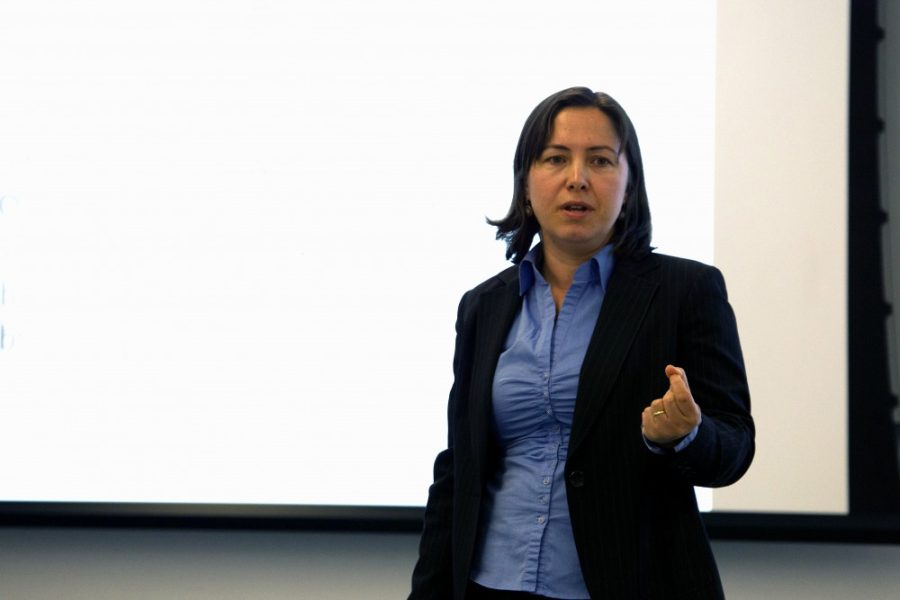Food brings people together in an infinite number of ways. Birthday parties revolve around close friends and sweet treats. Holidays are marked by traditional family feasts that can last the entire day. Newcomers are introduced to social circles through dinner party invitations. The list goes on.
Food and social relationships have been intertwined since the beginning of time, although they have changed shape over the centuries. There is currently a growing interest in local foods, genetically engineered organisms, responsibly raised animals and organic products in the United States. This increase in food consciousness, however, is not exclusive to the U.S.
One of the UA’s new candidates for professor of environmental studies of the Middle East, Dr. Nurcan Atalan-Helicke of Skidmore College, gave a talk titled “What Do Mothers Want? Debating Genetically-Engineered Food, Gender, and Religion in Turkey” on March 9, to explain how similar topics are interpreted in Turkish communities.
Over the summer Atalan-Helicke conducted focus groups with women from two different regions in Turkey, asking them questions regarding food and genetically engineered products.
Reactions to genetically engineered foods were overwhelmingly negative, although most participants were not able to articulate why they were against genetic modifications or cite specific health impacts of genetically engineered foods. Atalan-Helicke suggested that this selective knowledge was due to a powerful Greenpeace movement to turn the public against genetically engineered organisms.
Organic food also came up often in the focus groups, which Atalan-Helicke linked to a recent governmental push to raise awareness about organics. Women in the focus groups often equated organic food with healthy food, a correlation that has not been proven.
While genetically engineered foods are an important topic in modern health and environmental circles, they also play a prominent role in religious discussions in Turkey.
Many of the 1.6 billion Muslims throughout the world abide by halal food restrictions, eating only foods that are permissible under Islamic law.
There is no one single company, however, that provides halal certifications. In Turkey alone, there are five different certification groups, including one that states genetically engineered foods are halal, one that states they are haram, or forbidden, and one that says they are neither haram nor halal.
These certification groups have also suffered series of food scandals, leading many citizens to distrust brands and certification groups all together.
Today a trip to the market is not just about checking off five items on a list, it can be riddled with health choices, environmental considerations and label interpretations. For many families, food is not a light topic. Many of the women in Atalan-Helicke’s focus groups felt overwhelmed by the choices in front of them and some cried when the topic came up.
Food is central to motherhood in Turkish culture. An increasing number of Turkish women, however, are working full-time jobs and are simultaneously responsible for ensuring their families eat tasty, nutritious foods prepared with love.
Many of the women in the focus groups noted that they tried to buy organic this or halal that, but ultimately, their husbands did the shopping and had the final purchasing power. Even women with doctorate degrees complained of the external pressures they experienced from food and the guilt they felt when they could not provide their families with organic food, halal food or homemade sauces and yogurts.
Just the day before Atalan-Helicke’s talk at the UA, Turkish President Recep Tayyip Erdogan noted that “a woman is above all else a mother” in a speech commemorating International Women’s Day.
In a culture where motherhood and food are so closely intertwined, Erdogan may as well have said that one of a woman’s top priorities should be providing healthy, loving food for her family.
But in an era where there is so much food uncertainty, that job is becoming increasingly difficult.
Follow Julianna Renzi on Twitter.









